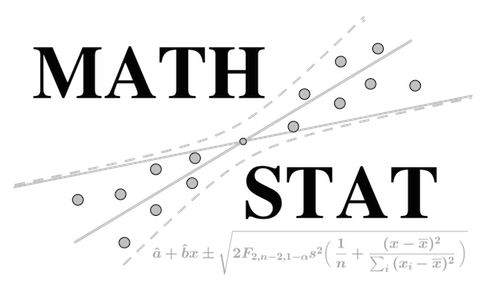Research Group: Statistics of Stochastic Processes
Assistant:
Research Topics:
(click to expand)Over the last decade, generative modelling has emerged as a powerful probabilistic tool in the field of machine learning. The concept is straightforward: transform noise to generate new data that aligns with a specific training dataset. These transformations must adapt to the information contained in the training data, which is typically high-dimensional. One class of generative model that has demonstrated highly proficient empirical generation capabilities in various contexts are denoising diffusion models.
To explain their empirical success mathematically, we must identify scenarios in which the distance between the target and generated distributions converges at a sufficiently fast rate (ideally minimax optimal) in terms of sample size, intrinsic dimension, and data distribution smoothness. Although significant progress has been made on related statistical questions in more idealised settings, existing statistical theory still falls short of providing a convincing mathematical explanation for why denoising diffusion models perform so well across a wide range of tasks. Our work focuses on understanding the statistical properties of denoising diffusion models in non-standard settings.
Contact:
Asbjørn Holk Thomsen
Although stochastic control problems are fairly well understood for many relevant systems, solutions provided by appropriate control strategies usually require specific knowledge of the system and its dynamics. In practice, this is often only partially feasible in that, while the system structure may be justified - for example, by modelling the dynamics via a stochastic differential equation (SDE) - the exact components are not available. The joint problem of estimating system components, or system identification, and simultaneous control then arises.
We are particularly interested in the corresponding nonparametric statistical challenges of estimating infinite-dimensional objects, and in developing control strategies based on these estimators for SDE-type systems. Our main focus is on developing and evaluating different learning strategies for stochastic control that utilise a close link to the theory of stopping times in stochastic processes.
Contact:
Hans Reimann
Stochastic partial differential equations (SPDEs) are used to describe the evolution of dynamical systems in the presence of persistent spatial-temporal uncertainties. In practice, the irregularities of many complex systems in various contexts are often too detailed for precise mathematical description. At this point, it is useful to introduce noise as a phenomenological replacement for a realistic element discarded by the deterministic part of the mathematical model.
Both the analytical and probabilistic theory of SPDEs and the statistical inference thereof have recently seen significant development, paving the way for the realistic modelling of complex phenomena in many applied disciplines, such as biology, finance, fluid dynamics, geostochastics, neuroscience and population growth. While the general form of a particular SPDE is commonly derived from the fundamental properties of the underlying processes under study, parameters often arise in the formulation that need to be specified or determined based on empirical observations. In such situations, the problem of parameter estimation emerges naturally. Assuming that a phenomenon of interest follows the dynamics of an SPDE and that one or more realisations of this process have been measured, we aim to determine the unknown parameters in the model to ensure that the equations fit or predict the observed data as accurately as possible.
As well as applying and investigating familiar estimation techniques in the context of relevant SPDE models, we are also interested in broadening the scope of statistical methodology by developing new parameter estimation strategies.
Contact:
Timo Dörzbach
Upcoming Events:
- Research Seminar Statistics: Marc Pritsch / Hans Reimann
Time and Place: 30.10.35 at 1pm in SR7 (INF205)
Abstract: Neural stochastic differential equations (NSDEs) are a powerful continuous-time extension of traditional, fixed-step generative time-series models. They combine the flexibility of neural networks with the mathematical rigour of differential equations. Using modern inference methods, we can estimate both the drift and diffusion terms that describe the system's dynamics. We aim to leverage the strengths of as world models in control settings. In our first study, we integrate NSDEs into a deep active inference framework - a biologically inspired control paradigm related to reinforcement learning (RL) - and demonstrate that the inherent ability of Neural SDEs to handle irregularly sampled data enhances policy learning compared to models operating on fixed time grids. We will further investigate the benefits of the continuous-time formulation through its links with stochastic control theory and numerical approximations of SDEs to improve current model-based RL frameworks. These improvements will be validated using standard RL benchmarks and real-world data.
The presentation investigates the (statistical) components of data-driven impulse control under different assumptions and the resulting characterising quantities. Starting with an introduction to the problem, we examine its typical structure and the aspects in which it is far less straightforward than it may initially appear. The discussion then focuses on how relaxing certain assumptions introduces additional challenges. Finally, we consider arguments that currently impose debatable restrictions, highlighting where a significant amount of proficiency is lost in the proposed strategies.
Recent Events:
- Workshop: Generative Models in Science and Machine Learning - 22.09. to 24.09.25
- Research Seminar Statistics: Carsten Chong - 24.07.25
Robust inference of rough volatility - GAMM Student Chapter Kick-Off: Claudia Schillings - 23.05.25
- Research Seminar Statistics: Randolf Altmeyer - 29.04.25
Bayesian inference in semi-linear SPDEs using spatial information - Research Seminar Statistics: Asbjørn Holk Thompsen - 23.01.25
Reflected diffusions as drivers of noise in denoising diffusion models
Recent Preprints:
- Beyond fixed horizons: A theoretical framework for adaptive denoising diffusions. arXiv preprint.
- Statistical guarantees for denoising reflected diffusion models. arXiv preprint.
- Nonparametric velocity estimation in stochastic convection-diffusion equations from multiple local measurements. arXiv preprint.
- Data-driven optimal stopping: A pure exploration analysis. arXiv preprint.
- Change point estimation for a stochastic heat equation. arXiv preprint.


